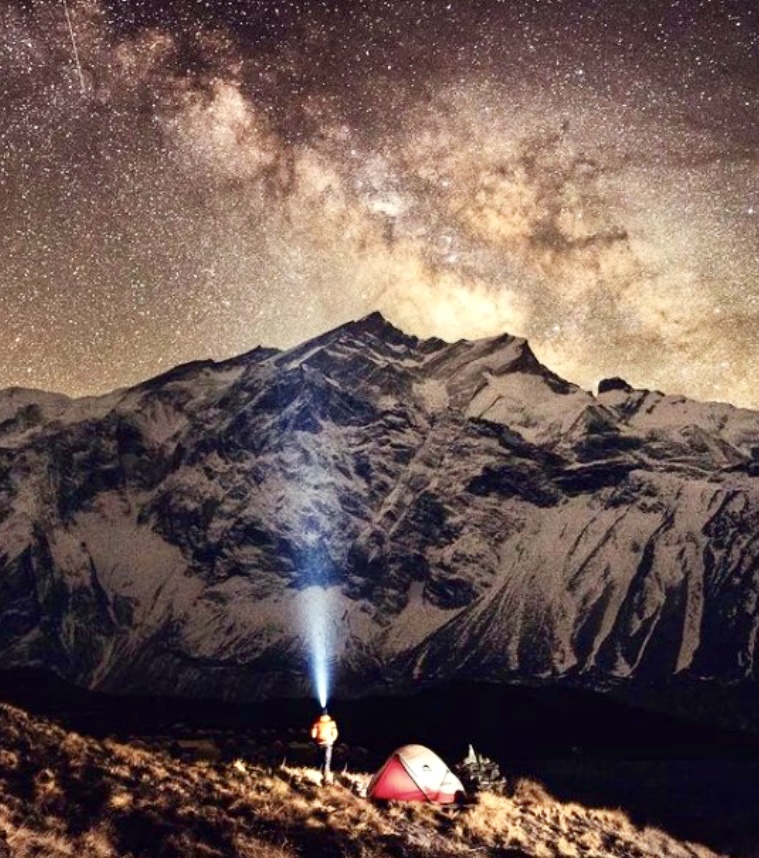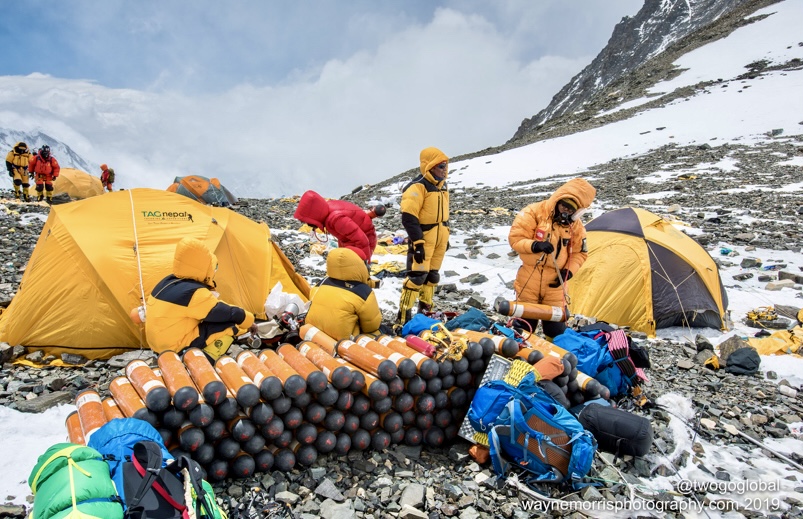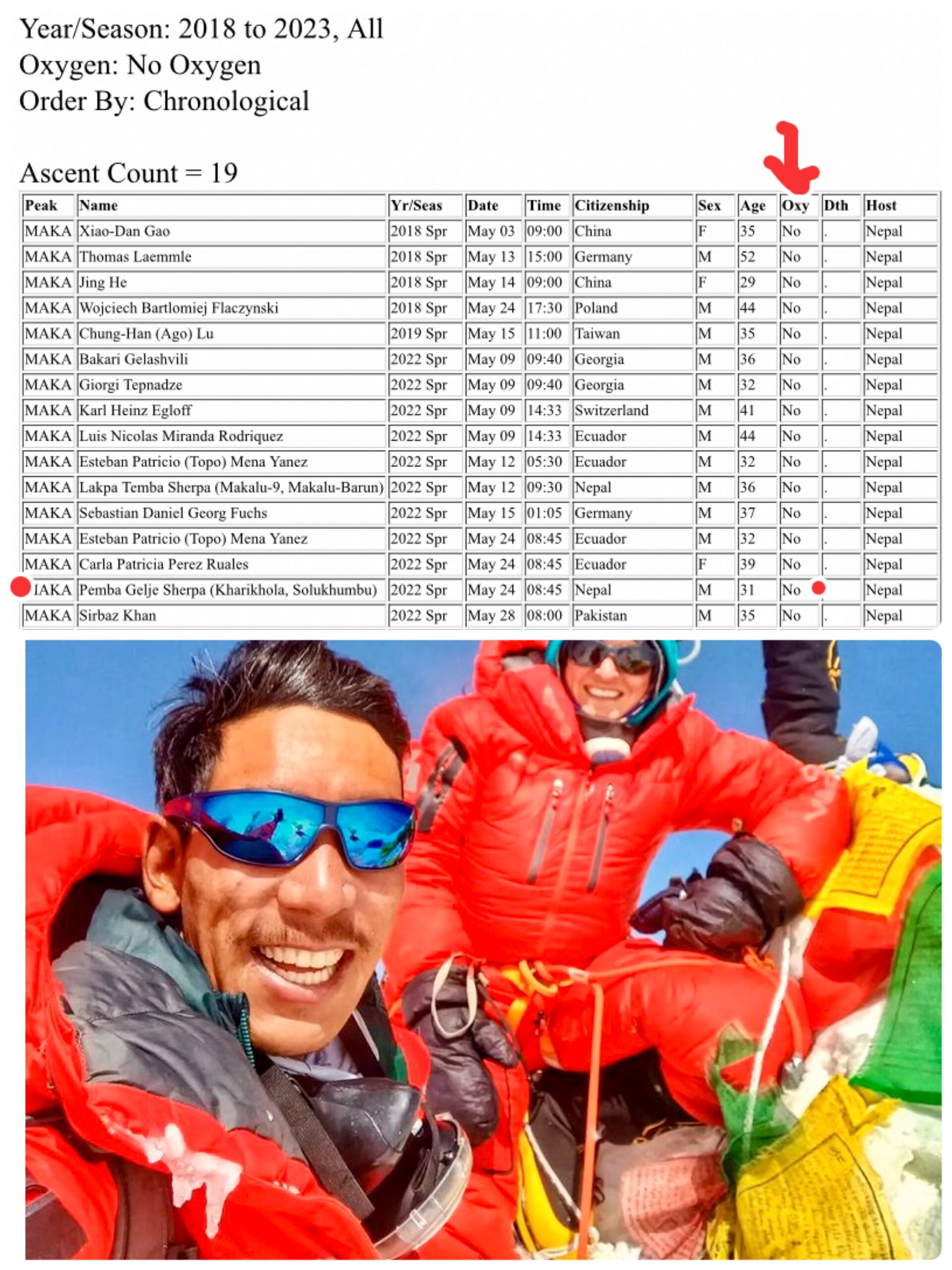As the climbing season starts in the Himalaya, we typically highlight those who attempt some of the 8,000m peaks without supplementary oxygen.
Nowadays, of course, sherpas fix ropes on the normal routes and set up the tents in each camp. Most climbers also enjoy one-on-one sherpa assistance during their climb. All this support counts almost as much as bottled oxygen. However, it’s still enlightening to see a short statistical summary of no-O2 ascents over the years.
On Everest, only a very low percentage of climbers forego bottled oxygen. But there are other, lower 8,000’ers in Nepal. Not too many years ago, the presence of bottled oxygen was a rarity.
Let’s examine some data from The Himalayan Database over three time periods: up to 1999, from 2000 to 2023, and then specifically 2018 to 2023. We’ll consider three of the 8,000’ers: Dhaulagiri I, Annapurna I, and Makalu. But the trends on those peaks apply to the others too.
Dhaulagiri I. Photo: Shutterstock
Dhaulagiri I
At 8,167m, Dhaulagiri I is the seventh-highest mountain in the world. Until the end of 2023, a total of 669 people ascended Dhaulagiri I, including 392 without supplementary oxygen. Until 1999, a total of 299 climbers summited, 231 of them without O2.
Between 2000 and 2023, 370 people summited, 161 without bottled oxygen. Between 2018 and 2023, of the 123 people who summited Dhaulagiri I, only 22 did so without bottled oxygen. You can see where the trend is going.

Annapurna Base Camp at night. Photo: Kamran on Bike
Annapurna I
Another 8,000m mountain where the use of bottled oxygen was rare in the past, 8,091m Annapurna I is the tenth highest peak in the world. The Himalayan Database has registered 476 successful ascents, 228 without bottled oxygen.
Until 1999, of the 107 total summits, 96 were done without O2. Between 2000 and 2023, there were 367 summiters, and 130 of them did not use bottled oxygen. But from 2018 to 2023, of the 215 successful climbers, only 19 did not use O2.

Oxygen cylinders at a high camp on Everest. Photo: Twogoglobal
Makalu
Makalu (8,485m), the fifth highest peak in the world, has been climbed by 718 people, including 254 no-O2. Until 1999, of the 156 summiters, 96 did not use oxygen.
Between 2000 and 2023, of 562 summiters, 158 went without O2. Between 2018 and 2023, 254 climbers topped out on Makalu, but only 19 made it without supplementary oxygen.
Note that these statistics may include a few small errors, because some climbers who did not ascend without oxygen may be credited with having done so. Their outfitter could have made a mistake in submitting the report or doubts may exist regarding the veracity of someone’s no-O2 climb.

Perfect statistics do not exist, as this error indicates: Pemba Gelje Sherpa’s ascent of Makalu is registered as a no-O2 climb. However, he never claimed to have done so without oxygen. Photo: Pemba Gelje Sherpa on the summit of Makalu.
